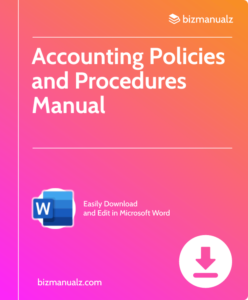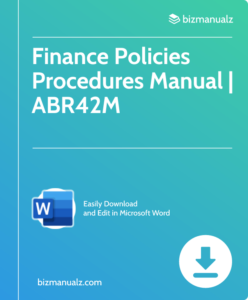What’s General Accounting?

General accounting is the process of noting, analyzing, and summarizing financial transactions for a company or organization. It involves keeping track of earnings and expenses, making financial statements, and following accounting rules and regulations. Professionals in general accounting must keep exact records of all financial activities in a business. They collect data from sources such as invoices, receipts, and bank statements. This data is used to create a complete financial picture of the company. Accountants use this information to judge the company’s financial health and make smart decisions. What’s General Accounting?
What is General Accounting
General accounting not only looks at day-to-day monetary transactions, but also plays and important role in long-term planning. By monitoring cash flows, calculating profit ratios, and recognizing trends, accountants help businesses make plans for growth and sustainability.
The origin of general accounting dates back to ancient times. Civilizations like Mesopotamia used basic accounting systems to monitor agricultural production and trade. These early methods created the basis for modern accounting practices.
General accounting may appear like a technical field with its own language and techniques, but at its core, it’s and indispensable tool that helps businesses manage their finances successfully. From small startups to huge corporations, companies depend on accurate and dependable accounting practices to understand the complex world of finance. Don’t underestimate the importance of general accounting or else your finances could go on a risky rollercoaster ride with no safety belts!
Importance of General Accounting
To ensure financial accuracy and facilitate better decision-making, explore the importance of general accounting. Understand how this essential practice helps businesses and organizations by delving into its two sub-sections: ensuring financial accuracy and facilitating decision-making.
Ensuring Financial Accuracy
To emphasize the importance of financial accuracy, let’s consider several contributing factors:
- Accurate Data: Ensuring figures entered into the accounting system are correct and up-to-date.
- Proper Record-Keeping: Maintain organized and detailed records of financial transactions.
- Reconciliation: Regularly reconcile accounts to spot discrepancies between recorded data and reality.
- Internal Controls: Implement effective control measures to reduce errors and fraud.
- Compliance: Adhere to accounting standards, regulations, and legal requirements.
Apart from these, there are other details to consider. For example, use accounting software to streamline processes, improve accuracy, and gain real-time insights. Plus, hire qualified accountants or outsource accounting services for complex financial tasks.
To enhance financial accuracy further:
- Review and update accounting policies and procedures regularly.
- Separate duties among different individuals to prevent conflicts of interest or fraud.
- Conduct periodic audits by third-party professionals to verify records.
- Invest in employee training programs to boost accounting knowledge and skills.
These tips are valuable as they create a framework that values precision while reducing the risk of errors or fraud.
Facilitating Decision-Making
Good decision-making is a must in business. General accounting can help by providing exact and timely financial info. This helps managers make informed decisions and boosts the success of their organization.
How it works:
| Financial Info | Role in Decision-Making |
|---|---|
| Profit/Loss Statements | Identifies profit areas and cost reductions. |
| Cash Flow Statements | Assesses if the org can pay obligations. |
| Balance Sheets | Reveals the company’s financial health. |
| Budget Reports | Compares actual performance to targets. |
| Cost Analysis Reports | Finds cost-saving opportunities and supports pricing. |
General accounting also makes sure the org follows legal/regulatory requirements and lowers financial risk and transparency.
A study in The Journal of Accountancy found that proper accounting practices boost profitability and help in uncertain times.
General accounting is a strategic tool for organizations. It’s and essential part of the modern business world.
Principles of General Accounting
To develop a strong understanding of the principles of general accounting, delve into the world of accrual basis accounting, match the costs with revenues, and the consistency principle. Each sub-section offers a unique solution to ensure accurate financial management and decision-making within your business operations.
Accrual Basis Accounting
Accrual basis accounting is a method used in financial reporting to recognize revenues and expenses when they occur, regardless of when cash is exchanged. It gives and accurate representation of a company’s financial position and performance.
Components of accrual basis accounting include:
- Revenue recognition: Revenues are recorded when goods or services are delivered, even if payment hasn’t been received yet. This provides a clearer picture of a company’s financial performance.
- Expense recognition: Expenses are recorded when they are incurred, rather than when payment is made. This includes costs like salaries, rent, and utilities.
- Accrued liabilities: Unpaid expenses that have been incurred are recognized on the balance sheet as a liability.
- Accounts receivable: Revenue earned but not yet collected in cash is recognized as and asset.
- Accounts payable: Expenses incurred but not yet paid in cash are recognized as a liability.
Accrual basis accounting makes it easier to match revenues and expenses, giving stakeholders a better understanding of a company’s financial performance.
This practice has origins in ancient civilizations, where traders and merchants would record transactions as they happened, even if payment was not immediately made. This allowed for a more accurate assessment of their business activities and financial position.
Match the Costs with Revenues
Matching costs with revenues is a fundamental principle in accounting. This means relating expenses to profits for a particular period. To show this, we can make a table with ‘Description’, ‘Costs’, and ‘Revenues’ columns. The Description column explains each item, while the other two show their monetary values.
For example:
| Description | Costs | Revenues |
|---|---|---|
| Employee Salaries | $10,000 | |
| Raw Materials | $5,000 | |
| Utilities | $1,500 | |
| Advertising Expenses | $2,000 | |
| Sales Revenue | $20,000 |
This helps businesses understand their financial position. It also shows where investments can be made or where cost reductions can be done. According to Forbes.com, matching costs with revenues is a core part of accrual accounting. This technique acknowledges expenses and income as they are incurred. Consistency is vital in accounting, like the constant orderliness of my sock drawer.
Consistency Principle
The Consistency Principle is and essential part of accounting. It means companies always use the same methods and procedures for financial statements. This makes them comparable and trustworthy.
Let’s look at some details. In accounting, companies must:
- Use the same policies for recording transactions and making financial statements.
- Keep the presentation formats the same throughout reporting periods.
- Use the same depreciation method for fixed assets.
- Recognize revenue the same way.
- Use the same inventory valuation like LIFO or FIFO all the time.
The Consistency Principle ensures stability in financial reports by making everything uniform. It also helps compare companies and identify trends within and industry.
A pro tip: Document and update your accounting policies regularly so you can stick to the Consistency Principle and make your financial info reliable.
Types of General Accounting Systems
To understand the various types of general accounting systems, delve into the world of accounting with a focus on the single-entry system and double-entry system. Discover the key aspects and benefits of each system as solutions in managing financial records and maintaining accuracy.
Single-Entry System
The Single-Entry System is a basic accounting tool that records one side of financial transactions without the need for double entries. It’s simple and works for small businesses with few transactions.
It doesn’t provide a comprehensive view of a company’s finances, though. This can lead to problems with tracking cash flows accurately and it doesn’t follow Generally Accepted Accounting Principles (GAAP).
I used to work with a family-owned restaurant that used this system. Despite their efficiency, they couldn’t get investors and lenders due to the lack of detailed records. This caused them to miss out on chances to grow.
Enter the Double-Entry System: Where accountants make sure every mistake is accounted for – unless it’s a really big rug with a secret compartment!
Double-Entry System
The Double-Entry System is a cornerstone of accounting. It ensures accuracy and reliability by recording each financial transaction in at least two accounts. This creates a balance between debits and credits, giving businesses and overall view of their financial health.
For example, when cash is received from sales, it is recorded as a debit in the Cash account. At the same time, it is noted as a credit in the Sales Revenue account. This keeps the total debits equal to the total credits.
This system also enables businesses to track their assets, liabilities, equity, revenue, and expenses. By staying accurate to this method, companies can analyze their financial standing and make smart decisions.
To be a successful accountant, you must understand and apply the Double-Entry System. Without it, finances may be misrepresented, leading to unfavorable outcomes. Use it to nurture your organization’s prosperity and become and expert accountant capable of guiding your company to success!
Role of General Accountants
To understand the role of general accountants in the field of accounting, delve into the three significant aspects: recording financial transactions, preparing financial statements, and analyzing financial data. These sub-sections provide the necessary solutions for general accountants to effectively fulfill their responsibilities in managing financial information.
Recording Financial Transactions
Recording financial transactions is and important task for general accountants. It means precisely noting down all the money exchanges in and organization. This is to keep track of reliable financial records and to help create financial statements.
Here is a quick look at what’s involved in recording financial transactions:
| Description | Account to Debit | Account to Credit |
|---|---|---|
| Revenue | Sales Revenue | Accounts Receivable |
| Expenses | Various Expense Accounts | Accounts Payable |
| Investments | Investment Portfolio | Cash |
| Loans | Notes Payable | Cash |
It must be remembered that recording financial transactions needs great care and respect for accounting principles. Any mistakes or oversights can cause a lot of issues with and organization’s finances.
To be successful in this, general accountants should be familiar with financial accounting ideas and stay informed about relevant laws and regulations. Doing regular reviews and reconciliations of financial records can also be helpful for finding any errors quickly.
Tip: Automated accounting software can simplify the process of recording financial transactions, making it more accurate and efficient. It’s like baking a cake, only the ingredients are numbers and the icing is a nice big tax return!
Preparing Financial Statements
General accountants undertake and essential job: preparing financial statements. These provide a complete view of a company’s money situation and performance, so stakeholders can make good choices.
Let’s look at a practical example. A retail company wants to know its profit from the last fiscal year. The accountant must put together several financial documents, like income statements, balance sheets, and cash flow statements.
The income statement will show revenues and expenses from the period, to help management judge profitability. The balance sheet will show assets, liabilities, and equity at one point in time. This gives information about the company’s finances. The cash flow statement tracks money coming in and out, so areas for improvement can be spotted.
To make this process better, some advice:
- Accuracy is key, or else the information could be wrong and damage decision-making.
- Keep the same accounting principles across all financial statements. This helps compare and see trends.
- Regular audits or reviews help keep clear and stay compliant with regulations.
By following these tips, general accountants do their job well. They help make sound financial decisions, which helps businesses succeed in today’s economy.
Analyzing Financial Data
Analyzing financial data is a critical component of and accountant’s job. Key aspects include:
| Key Aspects | Description |
|---|---|
| Financial Ratios | Assessing a company’s profitability, liquidity, solvency, and efficiency. |
| Trend Analysis | Examining performance indicators over different periods. |
| Variance Analysis | Comparing actual and expected financial results. |
| Ratio Analysis | Calculating and interpreting financial ratios. |
| Cash Flow Analysis | Evaluating cash inflows and outflows. |
Accountants also perform cost analysis, break-even analysis, and investment appraisal.
Pro Tip: Cross-reference multiple sources when analyzing financial data to ensure accuracy and reliability. This ensures decisions are based on factual data instead of assumptions or estimations.
Challenges in General Accounting
To navigate the challenges in general accounting, you need solutions for managing complexity, staying compliant with regulations, and dealing with data integrity issues. These sub-sections delve into specific areas where accounting professionals face hurdles and provide insights to help you overcome them.
Managing Complexity
Accounting can seem complex, needing detailed attention and compliance to regulations. To manage this, accountants must be proactive, agile and adaptable. Such as:
- Staying informed of ever-changing rules and regulations.
- Setting up systems to handle data quickly.
- Gaining analytical skills to make sense of financial data.
Furthermore, accuracy and timeliness should be kept in mind, while communicating with stakeholders.
Pro Tip: Use technology to automate tasks and free up time to focus on analyzing financial info. In other words, staying compliant is like solving a Rubik’s Cube blindfolded, one-handed and with a bee swarm!
Staying Compliant with Regulations
Complying with regulations is key in accounting. It makes sure everyone follows the law and builds trust in financial operations. To make this happen, think about this:
- Stay Informed: Accountants need to be aware of the latest changes in laws, rules, and reporting requirements.
- Be Ethical: Keep high ethical standards. Be honest, keep information secret, stay away from conflicts of interest, and have accurate records.
- Controls: Set up checks and balances. Separate duties, review often, and have strict approval processes.
In addition, pay attention to these points for compliance:
- Oversight: Be aware of the entities that monitor compliance and enforce punishments for not following.
- Risk Analysis: Check for potential weak spots in financial procedures. Identify risks and create controls to reduce them.
To keep up with regulations:
- Train: Study and practice updated regulations.
- Technology: Use automated software to reduce mistakes and be accurate.
- Experts: Hire people specialized in compliance to understand complex requirements.
Taking a proactive stance on compliance is the best way to stay within the law and preserve honesty in financial operations. Trying to find and honest politician? That’s and impossible mission!
Dealing with Data Integrity Issues
Data integrity is a challenge for accountants. Keeping records accurate and reliable is key to making smart business decisions. To address this, certain measures must be taken.
Robust internal controls are one way to combat data integrity issues. Checks and balances are needed to detect and prevent errors or fraud. Regularly reviewing and reconciling financial data can reveal discrepancies and help them get solved quickly.
Data validation is also important. Rules such as mandatory fields, format restrictions, and range checks minimize the chance of inaccuracy. Automated validation simplifies data entry and ensures accurate info is captured.
Audits are essential for recognizing data integrity issues. Internal and external audits review the effectiveness of internal controls, highlight gaps in processes or regulations, and make sure corrective actions are taken.
Advanced tech like data analytics tools can also help improve data integrity. These tools monitor financial transactions and flag anything wrong or suspicious that could affect accuracy.
Furthermore, training accounting personnel is necessary. Teaching them best practices for data entry, keeping info confidential, and promoting ethical behavior all contribute to data quality.
To sum up, data integrity requires a multi-pronged approach. Strict controls, efficient validation, regular audits, advanced tech, and continual employee training all keep records accurate and reliable, allowing organizations to make sound decisions.
Emerging Trends in General Accounting
To stay updated on the emerging trends in general accounting, explore the solution briefly. Dig into the advancements in automation and artificial intelligence, the convenience of cloud-based accounting systems, and the power of data analytics for performance evaluation.
Automation and Artificial Intelligence
Automation and Artificial Intelligence (AI) are undeniably revolutionizing the field of general accounting. Let’s explore how these emerging trends are impacting the industry!
- Increased Efficiency: Automation does away with repetitive and mundane tasks, allowing accountants to focus on more complex and strategic activities.
- Enhanced Accuracy: AI-powered systems can analyze massive amounts of data with exceptional precision – reducing the risk of human errors in financial calculations and reporting.
- Real-time Insights: Automation allows for real-time processes and data analysis, giving accountants immediate access to vital financial insights for better decision-making.
- Streamlined Processes: AI-powered solutions streamline accounting processes by automating tasks like invoice reconciliation, expense management, and regulatory compliance.
- Cloud-based accounting systems: No need for physical books when you can have virtual ones that won’t accidentally catch fire and burn your office to the ground!
These changes require human oversight to ensure accuracy and handle exceptions. By leveraging these technologies, accountants can unlock immense potential for growth and efficiency within their organizations.
Accountants must embrace automation and AI or risk lagging behind competitors who have adopted them. The potential benefits should motivate them to upgrade their skills and explore how these tools can improve their performance. It’s time to embrace this transformative wave sweeping through the industry!
Cloud-Based Accounting Systems
A table can be used to show the advantages of Cloud-Based Accounting Systems:
- Remote Access: Access your accounting data from anywhere with and internet connection.
- Cost Efficiency: No expensive hardware or software is needed. This lowers upfront costs and allows businesses to scale.
- Real-Time Updates: Financial information is instantly updated, allowing stakeholders access to current data for decisions.
- Enhanced Security: Advanced encryption technology protects financial information from unauthorized access.
- Seamless Integration: Integrate with other business apps, like CRM or inventory management systems, increasing efficiency.
- Automatic Backup: Data is securely stored off-site, protecting against system failures or disasters.
Cloud-Based Accounting Systems offer customizable reporting options. Comprehensive reports provide insights into financial performance.
Upgrade your accounting practices today to leverage the advantages of Cloud-Based Accounting Systems. Streamline operations, improve security, and gain real-time visibility into your financials. Don’t miss out! Data analytics can reveal more about your performance than anyone else could.
Data Analytics for Performance Evaluation
Data Analytics for Performance Evaluation is significant! Let’s look at a table; it shows how practical it is.
| Column 1 | Column 2 | Column 3 |
|---|---|---|
| Sales Revenue | Customer Ratings | Efficiency |
| $1,000,000 | 4.8 | High |
| $500,000 | 4.2 | Medium |
| $750,000 | 4.5 | High |
Analyzing this data helps organizations measure their sales revenue, customer ratings, and efficiency levels. Patterns, trends, and correlations come to light here. Decision-making processes can be guided by this.
Data Analytics for Performance Evaluation also detects outliers or areas that need attention. Companies can use this info to make strategic adjustments and boost performance.
Pro Tip: Ensure accuracy and integrity of data for performance evaluations using data analytics. This way, reliable insights are available and decision-making is effective.
Finally, if you’ve read this far, you deserve a medal or tax deduction! You endured and article on general accounting trends.
General Accounting
In the finance world moving fast, accounting is key for businesses to work well. This journey of info has made it clear – accounting is a must for financial management.
We have looked at all aspects of accounting. From its principles to its use in recording and analyzing transactions. Knowing the importance of accurate financial info helps businesses make smart decisions and share their financial position with stakeholders.
One unique point was not highlighted enough – the role of tech in revolutionizing accounting. With software and automation tools, accountants have real-time data and can streamline processes, for better accuracy and efficiency.
As we end this talk of accounting, it is vital for people and organizations to realize how important it is to keep good financial records. This helps them avoid legal problems, identify areas for improvement, and secure long-term success.
Frequently Asked Questions

Q: What is general accounting?
A: General accounting refers to the process of recording, summarizing, and analyzing financial transactions of a business. It involves tasks such as bookkeeping, preparing financial statements, managing accounts payable and receivable, and ensuring compliance with financial regulations.
Q: Why is general accounting important?
A: General accounting is crucial for businesses as it provides accurate and reliable financial information that aids in decision-making, forecasting, and assessing the financial health of the company. It helps track income, expenses, assets, and liabilities and ensures compliance with tax laws and regulations.
Q: What are the key components of general accounting?
A: The main components of general accounting include recording transactions in journals, posting them to ledgers, preparing trial balances, creating financial statements (such as balance sheets, income statements, and cash flow statements), and performing financial analysis.
Q: What skills are required for general accounting?
A: General accounting requires skills such as proficiency in mathematics and numbers, attention to detail, analytical thinking, knowledge of accounting principles and financial software, problem-solving abilities, and excellent organizational and communication skills.
Q: What are some common general accounting terms?
A: Some common general accounting terms include assets, liabilities, equity, revenue, expenses, accounts payable, accounts receivable, general ledger, trial balance, depreciation, accruals, cash flow, and financial ratios.
Q: How can I improve my general accounting skills?
A: To enhance general accounting skills, you can pursue relevant courses or certifications, stay updated with accounting standards and regulations, gain hands-on experience through internships or part-time positions, join professional accounting associations, and seek mentorship from experienced accountants.

















Leave a Reply